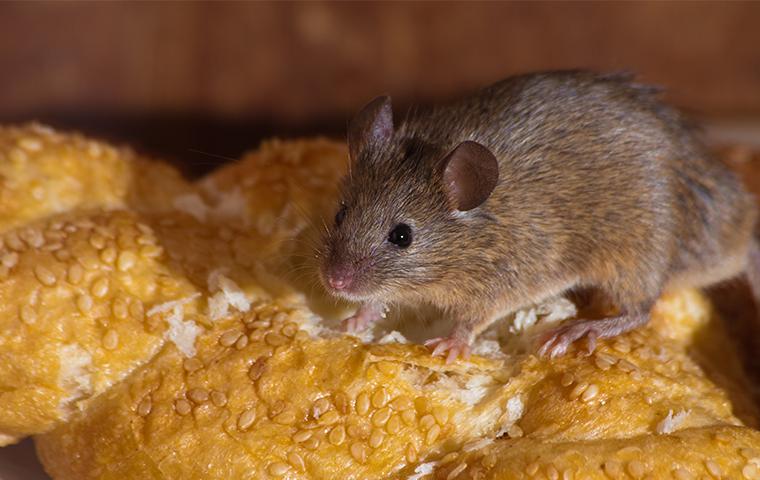
Keeping rodents out of your yard and home isn’t as simple as you might think. These small pests are good at finding ways inside and areas to hide where they can be close enough to steal our food and cause larger problems. Learning how you can keep rodents out and partner with professionals for superior protection will help keep your home rodent-free.
What Rodents Are Around?
The two most common types of rodents to invade human homes are mice and rats. From field mice to roof rats and brown rats, there are plenty of common rodent varieties. But they are all territorial and don’t like to share, so they target unclaimed yards and homes, making them a common problem for local residents. While both mice and rats can be dangerous to have around, you may be curious to know how to tell them apart:
- Size: Mice are roughly half the size of rats, which can grow to several inches in length. Mice appear to have longer tails, as they trail far behind their small bodies.
- Ears: Mice also have larger ears than rats. A mouse’s circular ears sit directly atop their heads, while rats have pinched ears that are tucked further back.
- Feces: Rats’ larger size gives them larger droppings, too. Rat poop tends to be curled or crescent-shaped, rather than the rice-shaped droppings of mice.
What Attracts Rodents?
The first step in preventing rodents is knowing what attracts them to human homes in the first place. Mice and rats invade because they know they can survive on the food, water, and shelter that human properties provide. Therefore, you need to reduce these attractants by taking the following actions:
- Food storage: Rodents can chew through common plastics and packaging, meaning you should store food in secure locations and sturdy containers.
- Trash storage: The same goes for trash bags, which rodents can chew through or gain access to through insecure bins.
- Deep cleaning: Rodents can survive on scraps if they can’t get at other food sources. Deep clean regularly, especially under heavy appliances.
- Moisture control: Water damage can provide rodents with areas to target for easy access, not to mention the hydration they need to survive. Curb moisture buildup where you can.
- Declutter: Excess clutter in storage locations, even debris out in the yard, can provide rodents with nesting areas and hiding spots.
How Do Rodents Get Inside?
The reason rodents are so common is that they create access points even if they can’t find a way in. Aside from the health problems they can cause, rodents are incredibly damaging to property. They will create openings from tiny faults, meaning you need to check for damage or cracks regularly. Here are areas to pay attention to:
- Exterior walls: You should check your outside walls every couple of months, making fixes wherever necessary.
- Fences: The same goes for fences, which rodents can dig under or breakthrough to get inside of your yard.
- Windows: Torn window screens can provide rodents with easy access through an open window.
- Doors: Believe it or not, some small rodents can squeeze through the gap under a door or pick and dig at the wood until the space is workable. Installing door sweeps can limit this access. Doggy doors provide the same access with less fuss.
- Roofs: Faulty shingles or pulled-back gutters can leave openings for rodents to enter through. Check these areas regularly.
True Protection From Pestmaster® Services
While it’s important to know what factors to consider around your property, it can be time-consuming and difficult to truly do everything you need to in order to keep rodents from invading. Instead of taking mice and rats on all by yourself, let the experts help by providing more tips and hands-on assistance. At Pestmaster® Services, our trained professionals can inspect your home inside and out for signs of rodents or the things that might attract them. We’ll not just address the immediate concerns, we’ll work with you to prevent future infestations.
Contact Pestmaster® Services to get started on total rodent control today.
.png)
